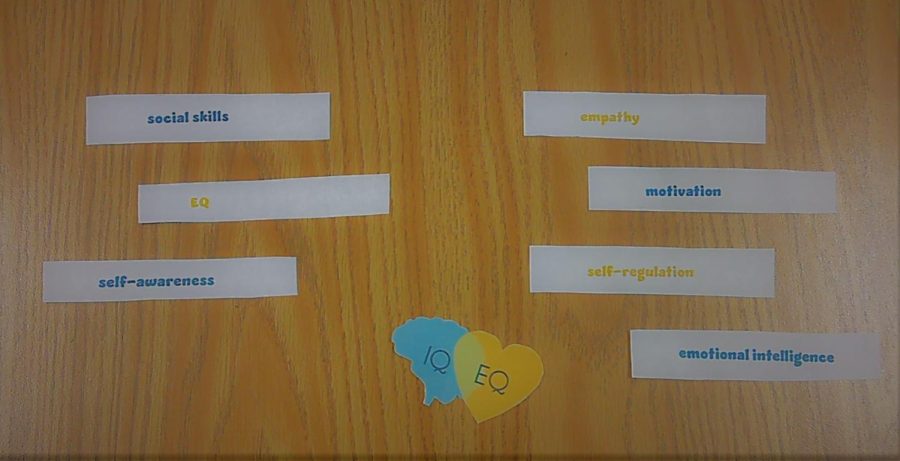The Influence of Emotional Intelligence on the Success of a Student
Emotional intelligence plays a major role in the overall wellbeing and success of an individual. Emotional intelligence is defined as a set of competencies that encompass one’s ability to measure and develop an understanding of one’s feelings. Emotional intelligence, also referred to as an “emotional quotient” (EQ), is especially beneficial to a high school student, in terms of the academic achievements, social skills, and the decision-making aspects related to it. EQ also involves one’s proficiency for recognizing and interpreting the feelings of others for various purposes, as well as managing emotions in social interactions.
There are five prominent components of EQ: self-awareness, self-regulation, motivation, recognizing emotions in others (empathy), and having social skills. Self-awareness is the ability to comprehend and monitor one’s feelings and actions. Self-regulation entails an individual knowing how to express his/her emotions in a proper manner. A January 26, 2022, Verywell Mind (verywellmind.com) article entitled “Five Key Emotional Intelligence Skills” claims, “Those who are skilled in self-regulation tend to be flexible and adapt well to change. They are also good at managing conflict and diffusing tense or difficult situations.” This denotes the many skills that a person adapts through emotional intelligence.
Motivation is another critical competence, which requires an individual to strive to set goals and achievements through commitment for the purpose of improvement or certain modifications. As claimed in an Icy Health (icyhealth.com) article on May 5, 2021, entitled “5 Main Components of Emotional Intelligence,” “[Motivation] is setting goals and aligning your actions in the direction to attain that goal. It is also overcoming any difficulty or obstacles in the path to attaining your goal.” There are two versions of motivation: extrinsic and intrinsic motivation. Extrinsic motivation entails an incentive or reward. Intrinsic motivation, commonly referred to as “internal” motivation, concerns an individual’s feeling towards the action being performed. Intrinsic motivation is more essential for a person’s emotional quotient, as it is connected to one’s commitment and passion for the task at hand.
Empathy, one of the most difficult EQ elements, requires extreme aptitude and perception of emotional states. Being empathetic is often described as putting oneself in another’s shoes, which portrays the basic action of trying to understand how a person is feeling. This skill enables a person to connect to others through common relations and acknowledge different power dynamics. The power-dynamics notion impact social relationships, which is associated with having strong social skills. The comprehension of empathy is significant to high school students for interactions with peers or other people whom one may encounter.
Sophomore Kylie Schroeder is aware of the effect that emotional intelligence has on a student. She believes that motivation is the most fundamental component of one’s EQ. Schroeder said, “Motivation and goal setting are very important because they can provide a person with guidance. In sports, having goals can improve your performance and give you the opportunity to prove yourself.” Setting different aims has many benefits to oneself and may help provide an individual with a sense of purpose or aid him/her by sustaining momentum in life. Schroeder also claimed that motivational skills apply to athletes, which shows that EQ components pertain to an extensive variety of events or circumstances in life.
People believe that one’s intellectual quotient, also known as “IQ,” determines his/her success in life or academic achievements. While intellectual intelligence outlines one’s reasoning abilities and general level of intellect, it does not dictate a person’s accomplishments throughout life or necessarily provide him/her with an “advantage.” According to Lynbrook school psychologist Jordan Richman, “A person who may have reasonable intellectual ability, but excels in the area of emotional connectivity and awareness, is at an advantage. On the contrary, a person who may be exceptionally intelligent but lacks emotional insight, may unfortunately suffer in many ways.” This exemplifies that an individual’s general success primarily depends on emotional intelligence rather than intellectual intelligence, as it is more influential towards a person’s overall functioning.
Freshman Angelina Macchia shared, “I feel that many specific skills regarding feelings and emotions were taught in middle school. I remember specific lessons that the teachers taught students about self-awareness, in addition to mindfulness and balance.” The pillars of emotional intelligence were shared with Macchia. She agreed that many of the components were introduced in school, but she also feels that some of the components, such as empathy and self-regulation, are a part of who one is and cannot be taught in school. Over time, these traits or abilities are picked up through experience of socialization and interaction.
There are many ways to improve or enhance one’s emotional quotient. Unlike an individual’s intellectual intelligence, which does not change significantly over a person’s lifespan, his/her emotional intelligence can grow. Some factors that may positively impact a student’s EQ include socialization, relationships, volunteering or community service, education, and incorporating different forms of creativity in daily activities such as reading and drawing.
Emotional intelligence is vital for many aspects of an individual’s life. Richman believes that “Emotional intelligence is at the heart of daily functioning for life. Long after someone is retired and stops working, a person will continue to need to relate to others, engage in society, and manage life’s personal challenges.” One’s EQ can influence stress management, emotion management, overall mood, self-expression, social interaction, as well as physical health. Emotional intelligence is an instrumental concept that pertains to many high school students throughout different situations in life.






















